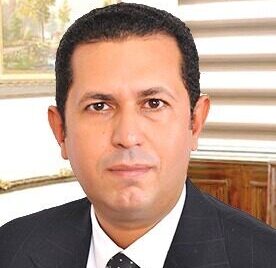Leaders who gathered in New Delhi for the annual G20 Summit on 9-10 September managed to agree on a joint statement that lessened deep divisions over the war in Ukraine and climate change.
The G20 Summit’s final statement was drafted after more than 200 hours of negotiations, 300 bilateral meetings and more than a dozen drafts, Amitabh Kant, a prominent organiser of the summit stated on X, formerly Known as (Twitter).
The final declaration should be deemed unprecedented, since it asserts the need to maintaining regional peace and suspending attacks on infrastructure in both Russia and Ukraine without bias to one party against the other. The declaration also stressed that all countries should refrain from the use of force to threaten or for the sake of territorial gain.
This reminds us of President Abdel Fattah El Sisi’s call during Egypt’s presidency of the African Union in 2019 for eliminating hotbeds of tension in Africa with serious efforts and practical steps to apply the ‘Silencing the Guns’ initiative in Africa, as well as the revival of the African policy for reconstruction and developing in the post-conflict phase.
The final statement calls on multilateral banks to exert comprehensive efforts to better develop its vision, operational approaches and financial capacities. The statement added: “We will mobilise collectively further concessional finance to enhance the capacity of the World Bank to support the low-income countries that are in need of help to face global challenges.”
In a related context, President Sisi said in his speech to the G20: “In my capacity as chair of the New Partnership for Africa’s Development (NEPAD) Heads of State and Government Orientation Committee, we have, in consultation with our African brothers, developed specific objectives to support our countries. Those focus on promoting continental economic integration, accelerating the implementation of Africa Agenda for Development, effectuating the African Continental Free Trade Area (AfCFTA) Agreement, mobilising resources for priority areas, including infrastructure, energy, communications and food security. This is in addition to addressing the continent’s debt crisis.”
“This shall enhance the continent’s ability to contribute to the global order, politically and economically, so as to achieve stability and strengthen the ability to address global challenges,” President El Sisi added.
Despite meeting in what the EU’s climate monitor says is likely to be the hottest year in human history, the G20 leaders failed to agree to a phase-out of fossil fuels, despite a UN report a day earlier deeming the drawdown “indispensable” to achieving net-zero emissions. Instead, they backed a target of tripling global renewable energy capacity by 2030, while committing only to a phasedown of coal in line with national circumstances.
In a related context, President Sisi said Egypt has succeeded in restoring the balance to the Global Climate Action Agenda, particularly by including the idea of “just transition” to a green Economy and by calling for the establishment of a fund to address climate losses and damages (the Loss and Damage Fund), during its hosting of the UN Climate change conference in Sharm el-Sheikh last November.
“In light of the gravity of the challenge posed by climate change and the global consensus on the importance of overcoming it, it is necessary for all parties to assume their responsibilities, based on the two principles of ‘Shared but Differentiated Responsibility’ and ‘Equity’, and to implement the resolutions adopted. Otherwise, trust will be lost and the multilateral action system will collapse,” President Sisi told the summit.
The G20 Summit’s final communiqué goes with the fixed Egyptian vision based on the need for peace, sustainable development and food security and conservation of environment – considering that a right for the peoples of the African continent, like the rest of the world.
Mohamed Fahmy is the editor-in-chief
of The Egyptian Gazette and
Egyptian Mail newspapers






Discussion about this post